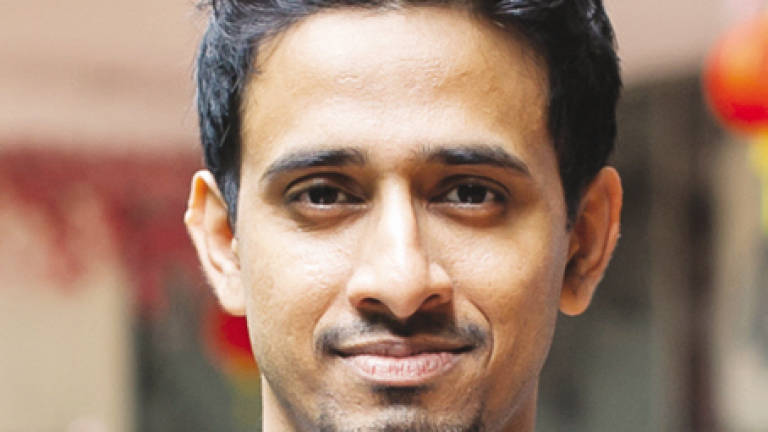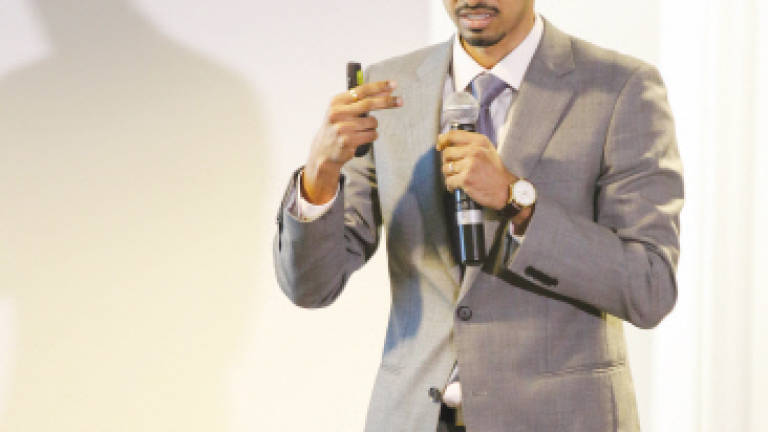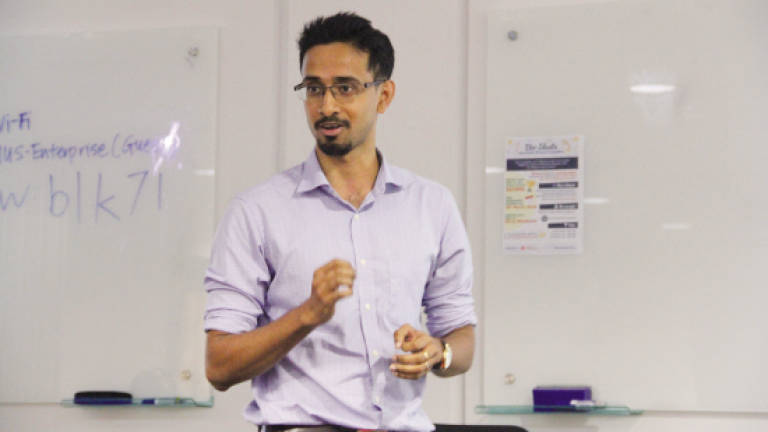In hour of need



ABOUT 12.8% of the Western population suffer from haemorrhoids, and some studies have shown that the disease is three times more prevalent in Asian population. Furthermore, 80% of pregnant women suffer from it too.
The founders of Privi Medical first came across the problem while doing their clinical immersion in US. At that time, they spent weeks shadowing doctors, nurses and patients to observe and understand the problems they face.
"That's when we realised that there is a clear unmet and overlooked need for early stage haemorrhoids; there's just no good solutions available now. We saw the same problem in Asia and hence we decided we should develop a solution for this unmet need," said Privi Medical co-founder and CEO, Prusothman Sina Raja.
The solution is a medical device which uses a proprietary drug-free mechanism to treat the disease. Being drug-free is important as a large percentage of pregnant women and the elderly population suffer from the disease.
The drug-based products in the market contain active compounds which may have long term side effects to the sufferers hence the company wants to develop something that is safe for everyone.
"The product development has been completed. We are working on the regulatory clearance at the moment. We believe we have collected most of the results we need for regulatory clearance.
"We will launch once the product receives regulatory clearance, which may take about a year. Medical devices generally take about four to eight years to get to market so we are doing pretty okay at the moment," Prusothman said.
You were among those listed in Forbes 30 Under 30 Asia. How does it feel?
I think it is a good recognition for everyone in Privi Medical. It is humbling to be listed together with the other honourees on the list. It motivates us to work harder.
What inspired Privi Medical?
Privi was founded by a group of people with clinical, engineering, scientific and commercial backgrounds. Our intention was to start an innovative medical device company that solves important unmet clinical needs. We look for unmet needs in clinical practice and develop innovative solutions for these needs.
How accessible is the device?
The product is meant for self-use at home and will eventually be available over-the-counter at pharmacies. However, we plan to sell through clinics only first.
Would the device be an advantage or disadvantage to hospitals?
We see the device as being an advantage to the hospitals. It allows the clinicians to attend to more critical cases such as cancer, and it will free up their time. We have been developing our product in close collaboration with specialist clinicians.
What were some challenges in developing the device?
There is a lot of stigma around the disease. People don't like to talk about it. So interviewing patients is always difficult. There were also challenges to reduce the cost of the device. We wanted this product to be affordable while maintaining high quality and standards. It took a lot of engineering effort to reduce the cost of manufacturing.
What are the plans for the company?
Our core competency is innovation. We would like to continue developing new ground-breaking medical technologies.
Why did you choose to pursue Biomedical Engineering?
Science, healthcare and innovation have always fascinated me. So it was a good mix of all these elements. However, Biomedical Engineering as an engineering speciality is still evolving. Many engineers in the healthcare industry still come from Mechanical or Electrical Engineering at the moment.
What were you doing before starting Privi Medical?
I was working for a Singapore-German biotech company called Ayoxxa Biosystems. It was a company born in the lab of my academic supervisor in the National University of Singapore, Assoc Prof Dieter Trau. I joined the company after graduation and left after a few years to join the Singapore-Stanford Biodesign fellowship.
What made you venture to Singapore?
I initially came to Singapore to pursue my undergraduate studies. At that time, I was also offered to study law in University of Malaya so it was a very difficult decision to make (I was passionate about law too). But I decided I wanted to venture out of Malaysia to enrich my experience.
What is your personal goal?
I would like to always be involved in bringing innovative new healthcare technologies to the market. There are a lot of unmet clinical needs out there and we can truly create positive impact in people's lives.